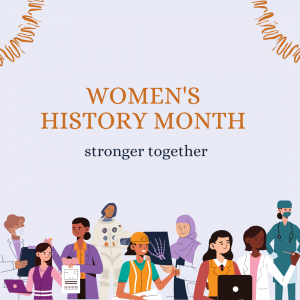In 1987 as a junior administrator at Prince George’s Community College in Maryland, I spent a week in Phoenix, Arizona at a Leaders Seminar sponsored by the American Association for Women in Community Colleges (AAWCC) under the guidance of two sheros: Dr. Mildred Bulpitt and Dr. Carolyn Desjardins. The strength of that experience lay in the exposure to these two amazing women whose work – over 50 years – spawned a broad community of talented women leaders. I left that week with a quizzical sense of empowerment. That same year, the national recognition of Women’s History Month ushered in a coast-to-coast recognition of the significant contributions made by women who dared to challenge societal norms. I was inspired then; I am inspired still.

As community colleges across the nation celebrate March as Women’s History Month, I am reminded of a quote I’ve carried with me over the years: “well-behaved women do not make history.” I consider myself and my colleagues – past and present – vanguards of women’s empowerment in the community college world, helping to create this new form of higher education that invites all students to enter our “open-door.” Forty of these women championing higher education were honored this week in Diverse magazine’s Women’s History Month report. I am both proud and humbled to be recognized as one of many dynamic and innovative women leaders who, together, make a collective of “women helping women.”
Having been a community college professional for 57 years, somewhere along the way the American community college, that ugly duckling from the wrong side of the ivory tower, turned into a proverbial swan! Where once women were virtually invisible at executive leadership levels at these institutions, the magic of our open-door mission is now well served by the special talents of women in leadership positions at every level. This is indeed a proud time to be a community college professional and a great time to be a woman aspiring to leadership roles in our sector.
Today, I am proud to see an engaged cadre of professionals applying both compassion and experience across a broad network of 1,000 community colleges. Harvard scholar and teacher Patricia Cross once said, “Morale is the outcome of shared vision.” Her words still have a powerful resonance today for a leadership style built upon drawing circles that pull people in rather than leaving them out and insisting that diversity – of opinion, as well as race, ethnicity, gender, age, mental and physical ability, religion, socioeconomic status, sexual orientation, gender identity and national origin – is a strength, not a burden.
Given our open-door mission; given the populations we serve; given that community colleges are institutions that by virtue of their mission do more than many when it comes to welcoming the many variants that make up diversity, equity, inclusion and belonging, we continue to strive to do more to empower the women leaders of tomorrow. That is the spirit that community colleges carry forward today. And so, I say to our young professionals, when we veterans look at you, we look into a glass that has become larger by the decade. We who make up today’s leadership level of community colleges are committed to holding wide our “open-door” to invite you in to take our places.
